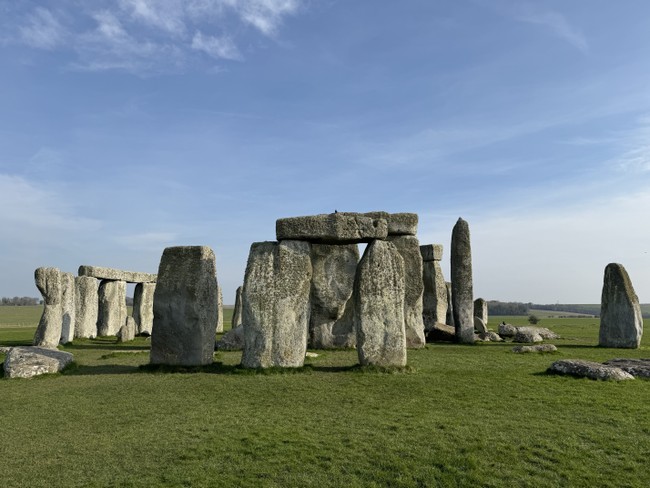The U.K. judge’s decision to clear three “Just Stop Oil” activists who sprayed Stonehenge with orange powder has stirred strong feelings on both sides of the aisle. The case touches on heritage protection, protest rights, and what many see as a growing double standard in how authorities treat political violence depending on the cause. This piece lays out the facts, the context, and why conservatives see a worrying precedent in how vandalism gets treated when wrapped in climate rhetoric.
Last June, climate activists with the “Just Stop Oil” group vandalized Stonehenge, a UNESCO World Heritage site that dates back to 3000 BC with later elements around 1520 BC. The act grabbed headlines because Stonehenge is an ancient monument few would expect to be targeted for protest. People on the right view attacks on cultural landmarks as an attack on the continuity of Western civilization.
The activists admitted taking part in the protest but denied charges of damaging an ancient protected monument and causing a public nuisance. According to reporting, the defendants argued “reasonable excuse” and cited Articles 10 and 11 of the European Convention on Human Rights, invoking freedom of speech and freedom to protest. A judge accepted those defenses in acquitting Rajan Naidu, 74, Oxford University student Niamh Lynch, 23, and Luke Watson, 36, after a 10-day trial.
Here’s more:
A UK court has acquitted two “Just Stop Oil” activists accused of defacing Stonehenge, with the judge citing their climate change motive and affirming that people have the right to protest in a democracy, even if others disapprove. pic.twitter.com/DnS4kVBfrm
— Breaking911 (@Breaking911) November 1, 2025
Three Just Stop Oil activists who sprayed Stonehenge with orange powder have been cleared of causing a public nuisance.
Rajan Naidu, 74, Oxford University student Niamh Lynch, 23, and Luke Watson, 36, were acquitted following a 10-day trial at Salisbury Crown Court.
They had denied all charges of damaging an ancient protected monument and causing a public nuisance, after targeting Stonehenge as part of an ongoing fossil fuel protest by the direct action group.
The trio accepted taking part in the protest and cited in their defence “reasonable excuse” and their rights under Articles 10 and 11 of the European Convention on Human Rights to freedom of speech and freedom to protest.
That outcome has left many conservatives baffled and angry. The point isn’t free speech — it’s that historic sites and the rule of law deserve protection from intentional damage. When the state treats vandalism as a permissible form of protest, you invite escalation.
People on the right note the selective enforcement all the time. If you protest migration or public policy from a conservative standpoint, you’re likely to be shut down, monitored, or even arrested; meanwhile some Left-aligned direct actions get sympathy from the bench. The original article put it bluntly: “But if you wish to protest mass migration to the U.K., the police will ban your protest. Or arrest you for saying that you like bacon.”
That contrast fuels the sense of a two-track justice system where motives matter more than actions. When a motive is fashionable or aligns with the cultural elite, the consequences seem lighter. Conservatives see this as a dangerous weaponization of discretion by judges and police.
Calling it a “two-tier justice system” is not hyperbole in this view; it’s an observation backed by repeated examples where left-leaning protests attract lenient handling. That kind of inconsistency corrodes public trust in institutions and makes the law feel like a partisan tool. People expect equal treatment under the law, not a parade of excuses when a favored cause breaks the rules.
Some argue activists feel emboldened when courts prioritize protest rights over preservation and public order. Yes, they should face consequences when they deface a thousand-year-old site. It’s not hard. If preservation means anything, it means protecting shared history even when the message behind the action seems noble to some.
Judges can respect free speech without excusing criminal damage, and police can enforce rules evenly without squashing legitimate dissent. Conservatives will keep pressing for consistent application of the law, clearer deterrents for vandalism, and protection of cultural heritage from political stunts. The Stonehenge case makes that fight more urgent.






